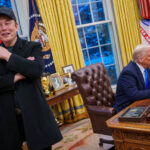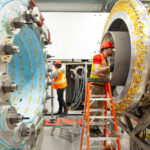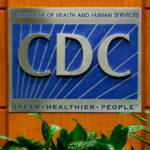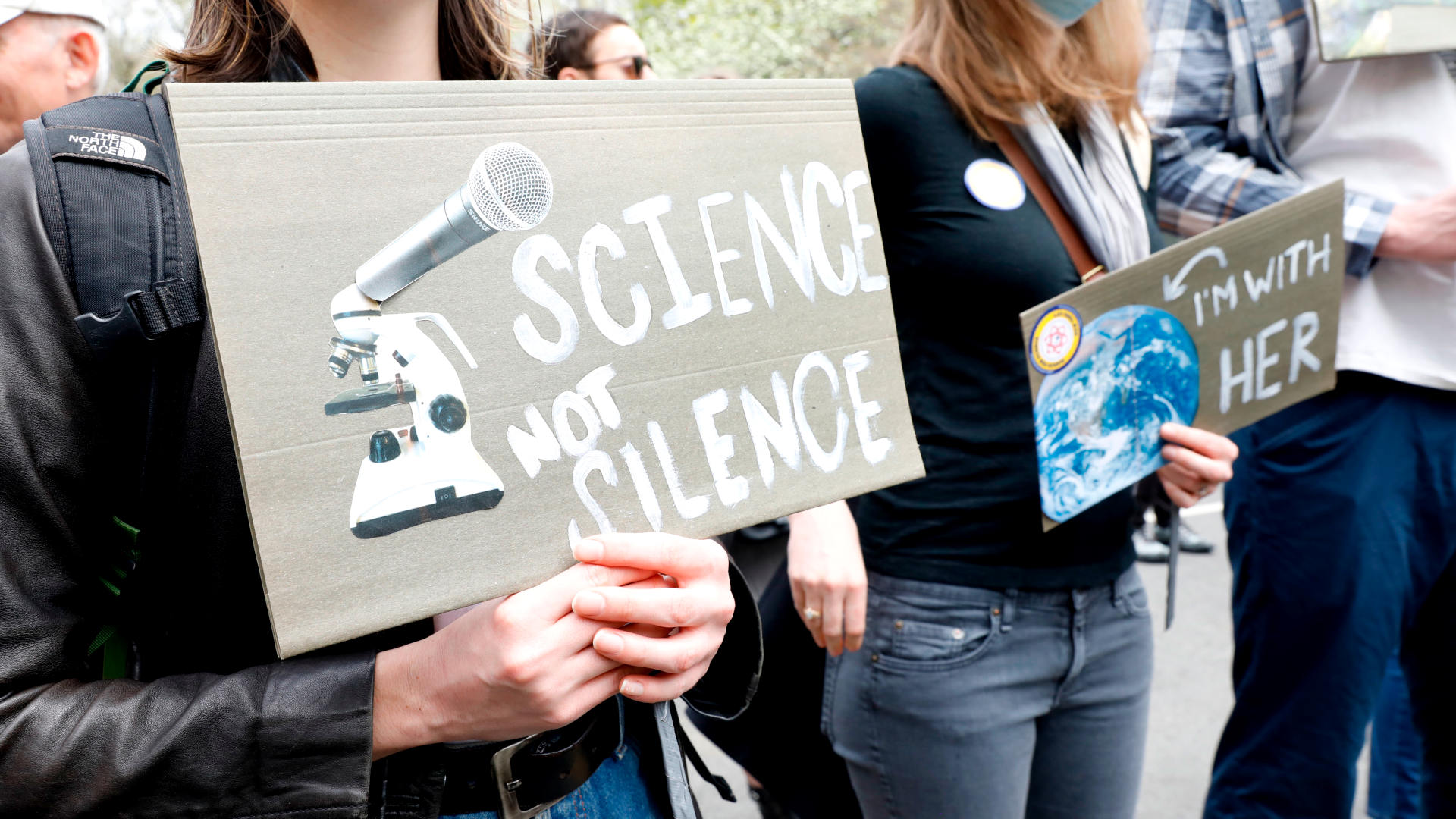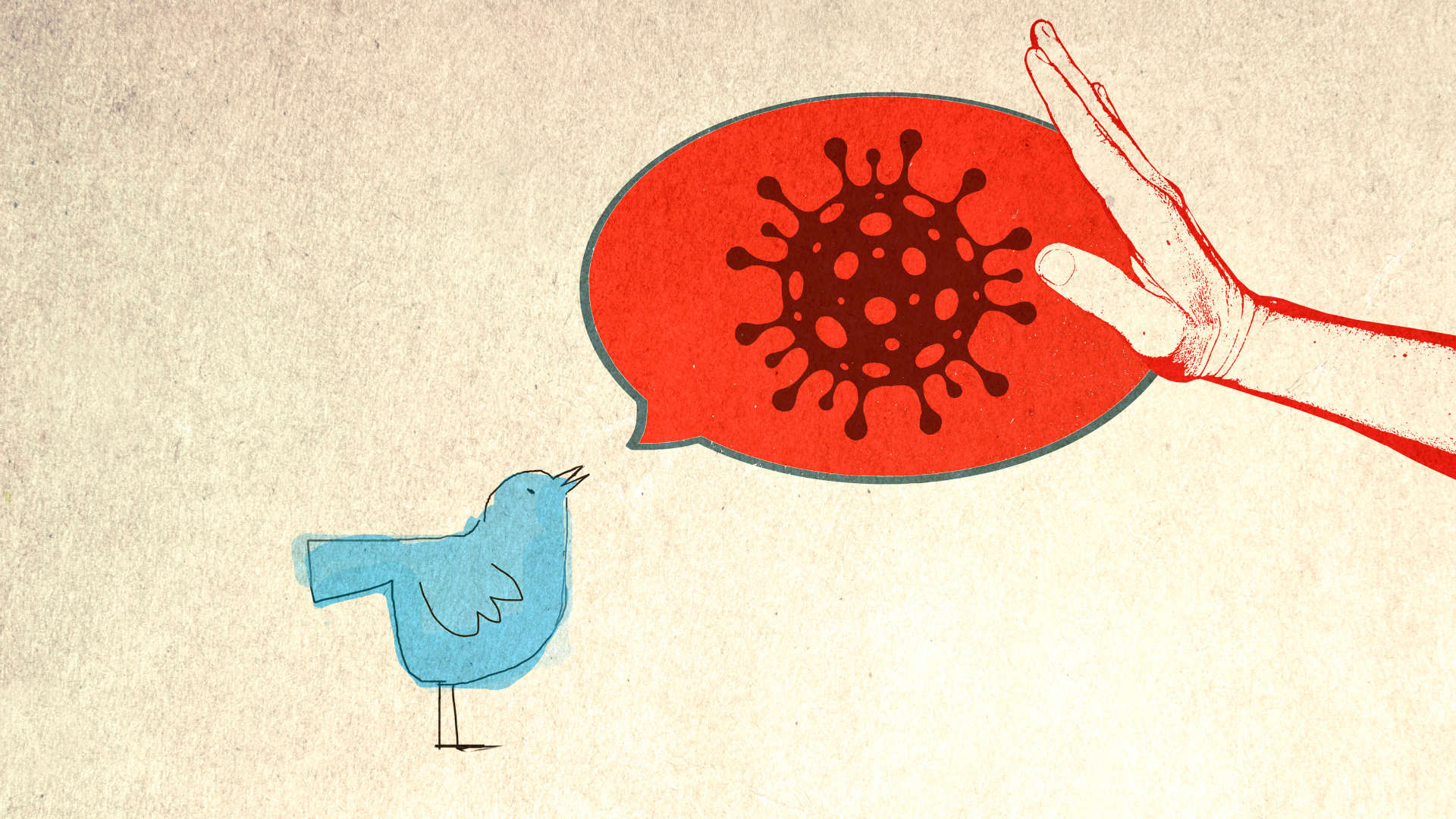The Uncertain Resiliency of Public Trust in Science
Public trust in science has been in the spotlight in recent years: After the U.S. presidential election in November, one Wall Street Journal headline declared that “Science Lost America’s Trust.” Another publication called 2024 “the year of distrust in science.”
Some of that may be due to legitimate concerns: Public health officials have been criticized for their lack of transparency during critical moments, including the Covid-19 pandemic. And experts have noted the influence of political factors. For instance, the first Trump administration repeatedly undermined scientists — a trend repeating in his second term so far.
But what does the research say about where public trust in science, doctors, and health care institutions actually stands? In recent years, researchers have been increasingly looking into quantifying these sentiments. And indeed, multiple surveys and studies have reported the Covid-19 pandemic correlated with a decline in trust in the years following the initial outbreak. This decrease, though, seems to be waning as new research shows a clearer picture of trust across time. One 2024 study suggests Trump’s attacks on science during his first term did not have the significant impact many experts feared — and may have even boosted confidence among certain segments of the population.
Overall confidence in scientific institutions has slightly rebounded since the pandemic, some research suggests, with that trust remaining strong across countries. Despite the uptick, there appears to be a still widening divide particularly between political factions, with Democrats showing higher levels of trust and Republicans showing lower levels, a polarization that became more pronounced during the Covid-19 pandemic.
“What we’re seeing now, several years later, is how deep those divisions really are,” said Cary Funk, who previously led science and society research at the Pew Research Center and has written reports on public trust in science. Funk is now a senior adviser for public engagement at the Aspen Institute Science and Society Program.
There appears to be a still widening divide particularly between political factions, a polarization that became more pronounced during the Covid-19 pandemic.
Political and economic entities have weaponized certain scientific topics, such as climate change, as well as the mistrust in science to advance their own interests, said Gabriele Contessa, a philosopher of science at Carleton University in Ottawa, Canada. In the future, that weaponization might engender mistrust related to other issues, he added. It remains to be seen what effect a second Trump term may have on confidence in science. Already, Trump issued a communications freeze on Department of Health and Human Services officials and paused federal grants, a move that was ultimately rescinded but still unleashed a flurry of chaos and confusion throughout academic circles.
“To have people like Donald Trump, who clearly do not trust reputable scientific sources and often trust instead disreputable or at least questionable scientific sources, is actually a very, very strong concern,” Contessa said.
In the winter of 2021, the Pew Research Center conducted a survey of around 14,500 adults in the U.S., asking about their regard for different groups of individuals, including religious leaders, police officers, and medical scientists. The proportion of the survey takers who said they had a great deal of confidence in scientists to act in the public’s best interest, the researchers found, decreased from 39 percent in November 2020 to 29 percent just one year later. In October 2023, at the lowest point since the pandemic began, only 23 percent reported a great deal of confidence in scientists. A analysis conducted by The Associated Press-NORC Center for Public Affairs Research reported a comparable decline: In 2018, 48 percent of respondents reported a great deal of confidence in scientists; in 2022, it was down to just 39 percent.
But years later, a new survey conducted in October 2024 suggested that the dip in trust may have been temporary. An update to the Pew survey that sought input from almost 10,000 adults in the U.S. shows a slow recovery: Compared to the 23 percent, now 26 percent report having a great deal of confidence.
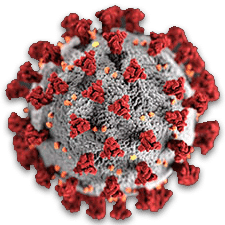
For all of Undark’s coverage of the global Covid-19 pandemic, please visit our extensive coronavirus archive.
Similarly, a 2024 study examining attitudes toward scientific expertise during a 63-year period found that Trump and Republican attacks on science, in general, did not actually sway public trust when comparing responses in 2016 to those from 2020. And a recent international survey that asked nearly 72,000 individuals in 68 countries their thoughts on scientists revealed that most people trust scientists and want them to be a part of the policy making process.
“There are still lots of people who have at least a kind of soft inclination to have confidence or trust in scientists, to act in the interests of the public,” said Funk. “And so majorities of Americans, majorities even of Republicans, have that view.”
But while public trust in general seems to be resilient, that finding becomes more complex on closer inspection. Confidence can remain high and increase for some groups, while simultaneously declining in others. The same study that looked at Trump’s influence on trust during his first administration, for instance, found that some polarization grew stronger on both ends of the spectrum. “Twelve percent of USA adults became more skeptical of scientific expertise in response to Trump’s dismissal of science, but 20 percent increased their trust in scientific expertise during the same period,” the study noted. Meanwhile, the neutral middle shrank: In 2016, 76 percent reported that they had no strong opinions on their trust in science. In 2020, that plunged to 29 percent.
“Prior to the outbreak, views of something like medical researchers, medical doctors, medical scientists, were not particularly divided by politics.”
The Covid-19 pandemic also seems to have had a pronounced effect on that gap: Consistently, research conducted after the pandemic shows that people with conservative ideologies distrust science more than those who are left-leaning. Overall, Republicans’ confidence in science fell 23 points from 2018 to 2022, dropping by half. Another recent poll shows declining confidence, specifically in Republican individuals, in health agencies such as the Centers for Disease Control and Prevention and the Food and Drug Administration. This distrust was likely driven by the politicization of pandemic policies, such as masking, vaccine mandates, and lockdowns, according to commentaries from experts.
The international survey of individuals in 68 countries did not find a relationship between trust in science and political orientation. Rod Abhari, a Ph.D. candidate at Northwestern University who studies the role of digital media on trust, told Undark this suggests that conservative skepticism toward science is not rooted in ideology but is instead a consequence of deliberate politicization by corporations and Republican pundits. “Republican politicians have successfully mobilized the conspiracy and resistance to scientists — and not just scientists, but government agencies that represent science and medicine and nutrition,” he added.
“Prior to the outbreak,” said Funk, “views of something like medical researchers, medical doctors, medical scientists, were not particularly divided by politics.”
So, what does this research mean for a second Trump term?
One thing that experts have noticed is that rather than distrusting specific types of scientists, such as climate change researchers, conservatives have begun to lump scientists across specialties and have more distrust of scientists in general, said Funk.
Going forward, Abhari predicted, “the scope of what science is politicized will expand” beyond hot-button topics like climate change. “I think it’ll become more existential, where science funding in general will become on the chopping block,” he said in mid-January. With the recent temporary suspensions on research grant reviews and payments for researchers and talk of mass layoffs and budget cuts at the National Science Foundation, scientists are already worried about how science funding will be affected.
This weaponization of science has contributed and will continue to lead to eroding trust, said Contessa. Already, topics like the effects of gas stoves on health have been weaponized by entities with political and economic motivation like the gas production companies, he pointed out. “It shows you really any topic, anything” can be used to sow skepticism in scientists, he said.
Going forward, Rod Abhari predicted, “the scope of what science is politicized will expand.”
Many experts emphasize strategies to strengthen overall trust, close the partisan gap, and avoid further politicization of science.
Christine Marizzi, who leads a science education effort in Harlem for a nonprofit organization called BioBus, highlights the need for community engagement to make science more visible and accessible to improve scientists’ credibility among communities.
Ultimately, Abhari said, scientists need to be outspoken about the politicization of science to be able to regain individuals’ trust. This “will feel uncomfortable because science has typically tried to brand itself as being apolitical, but I think it’s no longer possible,” Abhari said. “It’s sort of the political reality of the situation.”
The increasing polarization in public trust is concerning, said Funk. So “it’s an important time to be making efforts to widen trust in science.”





